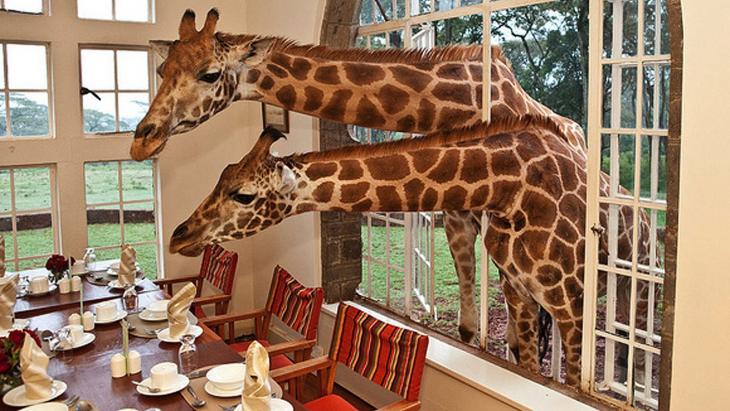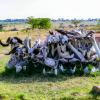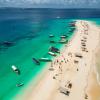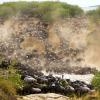How much does safari in africa cost?
Safari" is a Swahili word that means "journey" or "expedition." In English, it is commonly used to refer to a trip or expedition, especially to observe or hunt wild animals, often in the context of wildlife viewing in Africa.
An African safari typically costs between $125 and $1,500 per person per night. A budget safari costs $150 per night, a midrange $350, and a luxury $750. Extreme top safaris might easily cost $1,500 per night or more! There is literally a safari to suit any budget. Accommodation usually makes up the bulk of your safari's cost, so where you stay has the biggest impact on your budget.
Safari Bookings Company did a Research according to the packages listed on their website and below is a table giving a snapshot of the Cost for safari in selected popular African Countries.
Check Table Below:
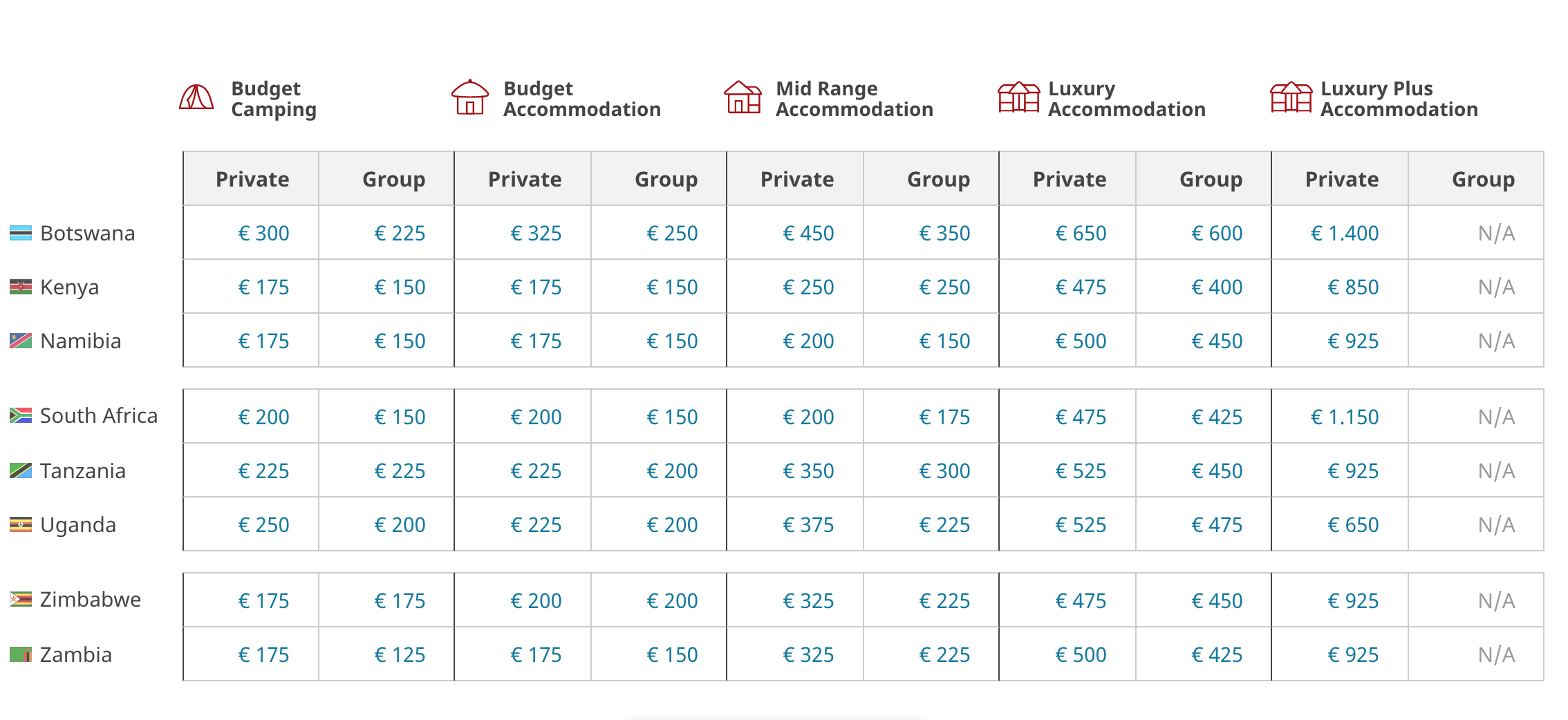
Factors influencing the cost of a safari
The cost of an African safari can vary significantly depending on several factors
-
Duration of Safari
Decide how many days you want your safari to last. Longer safaris generally offer more extensive wildlife viewing opportunities but can be more expensive due to additional accommodation and activity costs.
-
Timing
Consider the time of year you want to go on safari. Peak seasons might offer better wildlife sightings, but prices are typically higher. Off-peak seasons may be less crowded and cheaper but could have different weather conditions or fewer animal sightings.
-
Destination
Choose where you want to go on safari. Different countries and regions offer unique wildlife experiences and landscapes, each with its own price range.
-
Accommodation Preferences
Determine your comfort level with accommodation. Safari lodges and camps range from basic tents to luxury suites. Your choice will impact both the experience and the cost.
-
Accommodation Location
Consider the location of your accommodation within the safari destination. Lodges inside national parks or private reserves often offer more exclusive wildlife experiences but can be pricier.
-
Transportation Options
Decide how you'll get around during your safari. Options include guided game drives, walking safaris, or even hot air balloon rides. The mode of transportation can affect both the experience and the cost.
-
Exclusivity
Determine how exclusive you want your safari experience to be. Some travelers prefer private safaris with personalized itineraries and exclusive access to certain areas, which can come at a premium.
-
Specific Interests or Hobbies
Consider any specific interests or hobbies you have that you'd like to incorporate into your safari experience. Whether it's birdwatching, photography, or cultural interactions, tailor your safari to meet your interests, which may impact the choice of activities and accommodations.
In conclusion, the cost of a safari can vary significantly depending on several factors. These include the destination and specific location within Africa, the time of year, the type of accommodation preferred, the duration of the safari, transportation options, the level of service provided, park fees and permits, and the specific inclusions or exclusions of the safari package.
Travelers should carefully consider these factors when planning their safari experience to ensure it aligns with their budget, preferences, and expectations. By understanding the various elements that contribute to the overall cost, individuals can make informed decisions and choose a safari that offers the best value for their needs. Additionally, seeking advice from reputable safari operators or travel agents can help navigate the complexities of safari pricing and ensure a memorable and enjoyable experience in the African wilderness.

